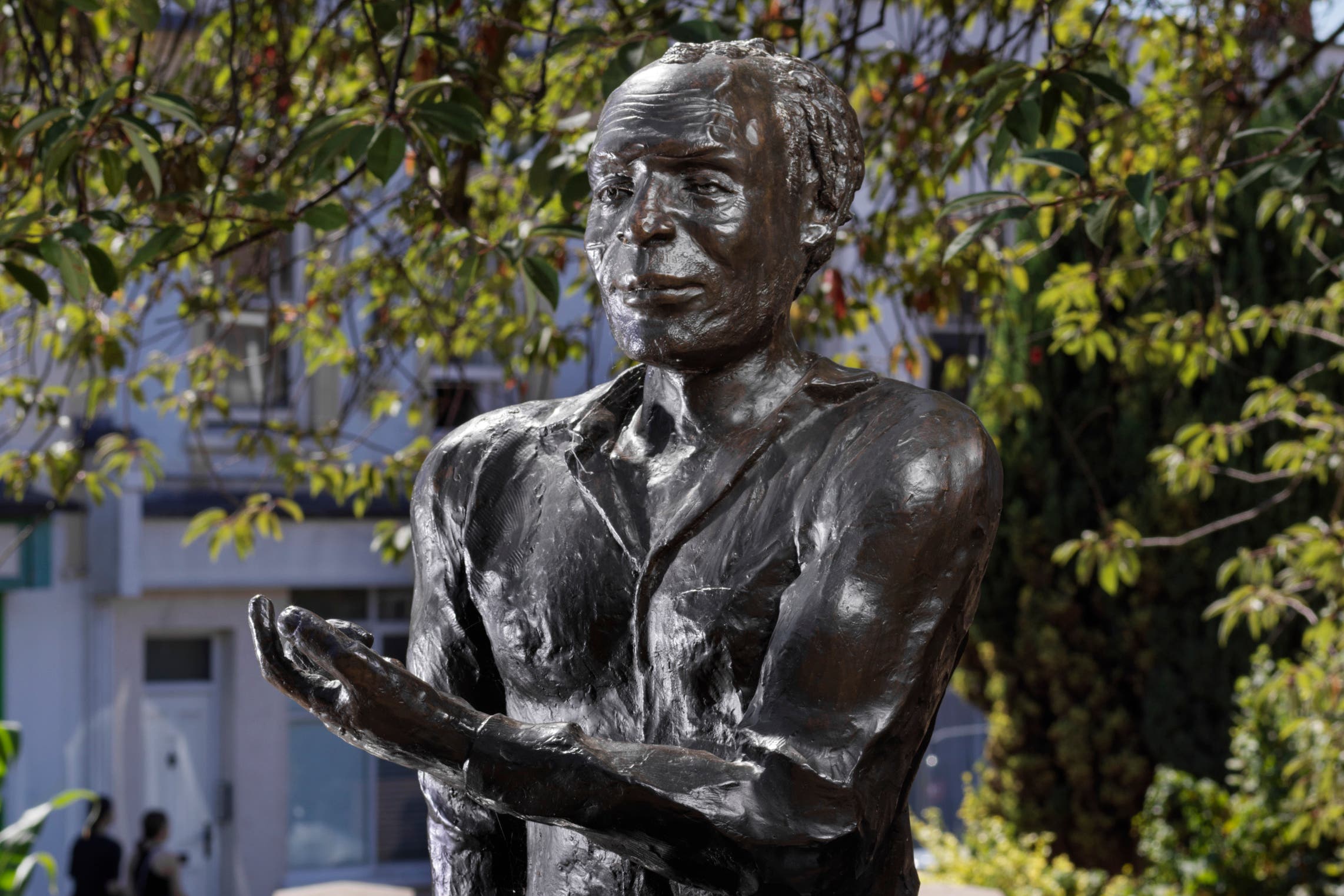Playwright Alfred Fagon’s bust among black history memorials given listed status
On the advice of Historic England, two memorials have been added and three amended.

Your support helps us to tell the story
From reproductive rights to climate change to Big Tech, The Independent is on the ground when the story is developing. Whether it's investigating the financials of Elon Musk's pro-Trump PAC or producing our latest documentary, 'The A Word', which shines a light on the American women fighting for reproductive rights, we know how important it is to parse out the facts from the messaging.
At such a critical moment in US history, we need reporters on the ground. Your donation allows us to keep sending journalists to speak to both sides of the story.
The Independent is trusted by Americans across the entire political spectrum. And unlike many other quality news outlets, we choose not to lock Americans out of our reporting and analysis with paywalls. We believe quality journalism should be available to everyone, paid for by those who can afford it.
Your support makes all the difference.A statue of black British playwright Alfred Fagon is among the memorials that have been given Grade II-listed status during Black History Month.
A gravestone of an African American who liberated himself from enslavement has also been added, while amendments to three existing listings have been made to highlight their historical significance within black British history.
The Department for Digital, Culture, Media and Sport made the additions and amendments to the National Heritage List on the advice of Historic England.
Fagon was recognised as one of the most notable black British playwrights of the 1970s and 1980s as well as being a poet and actor.
At the time of his death in 1986, it is thought that he was still the only black British playwright to have had work broadcast on national television.
The lifelike portrait bust by Zimbabwean artist David Matusa was erected in tribute to Fagon in 1987 in the St Paul’s area of Bristol.
The listed status is to “celebrate this bust’s special architectural and historic interest” and give it a form of protection for future generations.
The second listing is of a gravestone in Chelmsford belonging to Joseph Freeman, a formerly enslaved man from New Orleans who liberated himself from enslavement and later died in the English city in 1875.
Historic England has said the memorial is of “considerable importance” as it provides evidence of formerly enslaved African American people in England and serves as a reminder of the human impact of the Transatlantic Slave Trade.
Among the amended listings is a Grade II Baptist Church in North Shields which held talks by abolitionist Frederick Douglass during his tour of the UK in 1846 as he spoke out on the system of slavery.
Another being that of the 6 and 7 Christmas Steps in Bristol, which are a pair of Grade II listed attached houses with former shops at ground level, now rare due to bombing in the Second World War.
An amendment has been made to mark that in the 1870s, number seven was the residence of Carlos Trower who became a high rope artist of national repute after self-liberating himself from enslavement in America.
The National Heritage list entry for the grave memorial to Susannah and William Darby in Leeds has also been amended to highlight their story.
William Darby, more widely known by his stage name of Pablo Fanque, was one of the most successful circus impresarios in Victorian England and the first black circus owner in Britain.
Duncan Wilson, chief executive of Historic England, said: “Black History Month offers a great opportunity to bring attention to black stories and celebrate the important contributions of black people to our nation’s story.
“The stories highlighted by these new listings and amendments are fascinating and important additions to The National Heritage List for England.
“These new additions are part of our ongoing commitment to recognising and celebrating our diverse heritage.”
Heritage minister Lord Kamall added: “Black History Month is an important time to celebrate and reflect on the diversity of our heritage.
“These new listings will preserve important pieces of our history and make sure the stories behind the landmarks are told to new generations.”